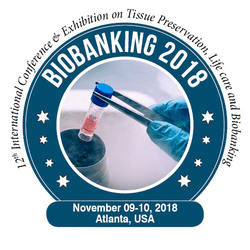
Martin J D’Souza
Mercer University, USA
Title: Bio fabrication of smart microcapsules containing insulin secreting pancreatic islet cells: Potential applications in diabetes mellitus
Biography
Biography: Martin J D’Souza
Abstract
Regenerative medicine off ers an opportunity to restore or establish normal “pancreatic function”. Type 1 diabetes mellitus (T1DM) is a disease, characterized by lack of pancreatic islet function. Whole tissue transplantation appears to be a viable alternative in the management of T1DM due to limitation of exogenous insulin therapy. Th is study aims at fabrication and evaluation of smart biomaterials such as alginate-chitosan in microcapsule encapsulating insulin-secreting pancreatic islet cells using an automated novel specialized spraying nozzle. Microcapsules were characterized for permeability, stability, and cell viability. Microencapsulated β TC-6 cells were transplanted intraperitoneally into streptozotocin (STZ) induced diabetic mice and monitored for a decrease in blood glucose level and cell implant tolerance. Spherical microcapsules with diameter in the range of 250-350μm were prepared at an air fl ow rate of 250L/hr. Since the process is automated, this allows for small or largescale production with minimal batch-to-batch variation. Microencapsulated β TC-6 cells in alginate capsules demonstrated prolonged viability. Mice that received microencapsulated β TC-6 cells maintained normoglycaemia for the study period of around 35 days. However, the mice that received naked pancreatic islet cells rejected the graft within 1 or 2 days. In conclusion, microcapsules produced by the specialized nozzle were reproducible with narrow size distribution. Our fi ndings using mice in the in vivo studies revealed that transplantation of microencapsulated β cells may be a viable alternative in the management of T1DM with greater immune acceptance.

